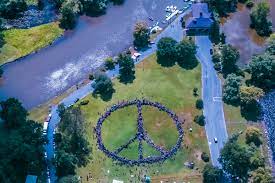HARMONIZING HUMANITY: THE TRANSFORMATIVE ROLE OF THE INTERNATIONAL HUMANITARIAN CODE IN CONFLICT RESOLUTION
AUTHOR – MS. SANDHRA M PILLAI, STUDENT AT MANIPAL UNIVERSITY JAIPUR
BEST CITATION – MS. SANDHRA M PILLAI, HARMONIZING HUMANITY: THE TRANSFORMATIVE ROLE OF THE INTERNATIONAL HUMANITARIAN CODE IN CONFLICT RESOLUTION, ILE WEEKLY REVIEW (ILE WR), 1 (3) OF 2023, PG. 1-18, APIS – 3920 – 0037 | ISBN – 978-81-964391-3-2.
ABSTRACT
The international humanitarian code, encompassing the principles and norms of international humanitarian law (IHL), plays a critical role in conflict resolution endeavour’s worldwide. This article explores the multifaceted and significant role of the international humanitarian code in promoting peace, protecting civilians, and facilitating constructive dialogue during armed conflicts. Through an in-depth analysis of key IHL principles and their application in conflict situations, this study highlights the invaluable contribution of the international humanitarian code in achieving sustainable and just resolutions to conflicts. In the pursuit of conflict resolution, the international humanitarian code guides the actions of both state and non-state actors, setting a framework for their behavior. One vital aspect is the protection of civilians, ensuring their safety, dignity, and access to humanitarian assistance. By upholding the principle of distinction between civilians and combatants, the code serves as a foundation for minimizing civilian harm and averting indiscriminate attacks. The concept of proportionality further reinforces this principle, requiring parties to consider the potential harm to civilians in relation to the anticipated military advantage.
Furthermore, the international humanitarian code fosters an environment conducive to dialogue and negotiation, essential elements of conflict resolution. Through adherence to IHL principles, parties to a conflict demonstrate their commitment to respecting the rights and lives of all individuals involved, facilitating trust-building and opening avenues for peaceful engagement. Mediators and peace builders also rely on the international humanitarian code as a guiding framework in their efforts to facilitate dialogue, reconcile differences, and seek mutually acceptable solutions. This article critically examines the interplay between the international humanitarian code and conflict resolution processes, shedding light on the symbiotic relationship between the two. It delves into case studies and practical examples to illustrate how adherence to IHL principles contributes to mitigating the humanitarian consequences of conflicts and advancing peaceful outcomes.
In conclusion, the international humanitarian code serves as a cornerstone in conflict resolution, promoting peace, protecting civilians, and facilitating dialogue. It underscores the importance of upholding IHL principles to foster sustainable peace, ensure justice, and respect human rights in conflict-affected regions. By embracing the principles of the international humanitarian code, stakeholders involved in conflict resolution can navigate complex challenges, promote humanitarian values, and work towards a more peaceful and inclusive world.
Keywords: International humanitarian code, conflict resolution, peacebuilding, protection, civilians, dialogue.
